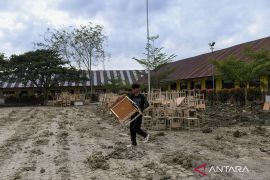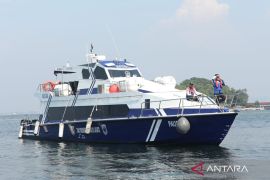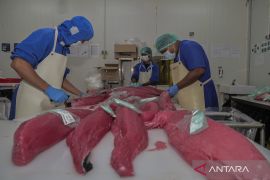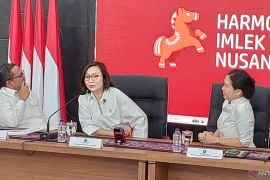The development of Sislognas has been stated in Presidential Decree No. 26 of 2012 on the blueprint of national logistics system development.Jakarta (ANTARA News) - The new government will optimize the implementation of the national logistic system (Sislognas) to improve the domestic logistics industry, stated Deputy Assistant for Logistics System and Trade Facilitation, Coordinating Ministry for Economic Affairs, Erwin Raza.
"The new government will optimize the implementation of Sislognas to improve the delivery of goods in a bid to reduce logistics costs," Raza noted here on Thursday.
He remarked that the new government aims to ensure sound inter-island and inter-village connectivity.
"This is what we must achieve together to improve Sislognas," he pointed out.
He emphasized that ideally, the improvement in the logistics industry should begin at the commodity level. As commodities have quite diverse characteristics, hence the infrastructure needs too will vary accordingly.
"For instance, we talk about the handling of bulk commodities at a port, which is very different from handling containers and so does its transportation. However, as it has been taking place for so long, hence this must be considered," he explained.
Moreover, information technology was also very important in the field of logistics, and so, all stakeholders must update themselves and apply the latest developments in information technology.
The development of Sislognas has been stated in Presidential Decree No. 26 of 2012 on the blueprint of national logistics system development.
Erwin said the implementation of these policies should be pursued in a bid to improve business.
"It is also supported by the new transportation minister who promised to reduce logistics costs," he asserted.
Transportation Minister Ignatius Jonan earlier planned to reduce the high logistics costs that have hindered the growth of the national transportation sector.
"Logistics costs must be reduced significantly. It should be suppressed as much as possible," the transportation minister noted here on Thursday.
Jonan pointed out that logistics costs were inversely proportional to social welfare. If the logistics costs increase, then the welfare of the community declines.
Currently, the national logistics costs were about 25 percent of the gross domestic product (GDP), as a result, this year, Indonesia was ranked 59th among the 160 surveyed countries, according to World Banks latest Logistics Performance Index (LPI) released in March. As per the survey, Vietnam was ranked 48th, Thailand (35th), Malaysia (25th), and Singapore (5th).
"Logistics costs have to come down, and it is a milestone that must be achieved. Logistics costs worth 25 percent indicate that of an items total cost, 25 percent constituted logistics costs," he stated.
He claimed that if logistics costs declined, though only five percent, then the purchasing power of the people would increase.
"If we are not competitive, we will become a consumer society," he emphasized.
To curtail logistics costs, Jonan plans to develop multimodal transportation.
"Multimodal transportation, also known as combined transportation, will translate to reducing the logistics costs. So, it should be developed," he affirmed.
He remarked that the ministry will promote the development of multimodal transportation, especially at sea.
Jonan revealed that he will invite several associations, market participants, and operators to discuss logistics costs in order to avoid sectoral ego.(*)
Editor: Heru Purwanto
Copyright © ANTARA 2014











